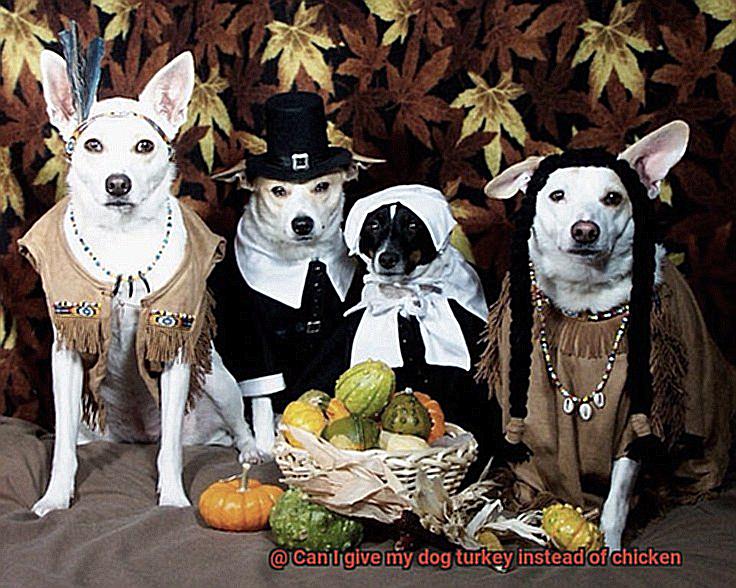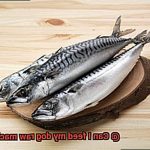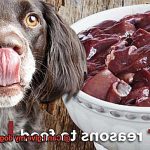Can I give my dog turkey instead of chicken?
We all know that our furry friends deserve the best, especially when it comes to their meals. As pet parents, we’re constantly on the lookout for new and exciting ways to spice up their diet. One question that often pops up is whether turkey can be a substitute for chicken in your dog’s bowl. Today, we’ll dive into this culinary conundrum and explore the advantages and potential risks of giving your canine companion turkey instead of chicken.
Can I give my dog turkey instead of chicken?
Contents
- 1 Can I give my dog turkey instead of chicken?
- 2 Can French Bulldogs Eat Turkey?
- 3 Benefits of Feeding Your Dog Turkey
- 4 Considerations When Feeding Your Dog Turkey
- 5 Is Turkey a Healthy Substitute for Chicken?
- 6 How to Introduce Turkey to Your Dog’s Diet
- 7 Potential Health Risks of Feeding Dogs Turkey
- 8 Tips for Choosing Safe and Nutritious Meats for Dogs
- 8.1 Turkey is a lean and low-fat meat, which can be beneficial for dogs that need to watch their weight or have certain health conditions. It is also packed with protein, vitamins B6 and B12, and minerals like iron and zinc. These nutrients are essential for your dog’s overall health and well-being.
- 8.2 While turkey can be a nutritious option for dogs, it should not replace chicken entirely in their diet. Dogs require a balanced and varied diet to meet all their nutritional needs. Chicken offers different nutrients than turkey, such as omega-3 fatty acids and certain amino acids. Therefore, it is best to incorporate both meats into your dog’s diet to provide a wide range of essential nutrients.
- 9 Conclusion
Turkey Benefits:
Turkey can be a fantastic addition to your dog’s menu, offering a leaner alternative to chicken. If your pup needs to watch their weight or isn’t as active as they used to be, the lower fat content in turkey can help them maintain a healthy figure and reduce the risk of obesity-related health issues. Plus, turkey is packed with essential nutrients like iron, zinc, and selenium that promote strong bones, healthy skin, and a shiny coat.
Potential Risks:
While turkey has its perks, it’s important to consider some potential drawbacks too. Dogs may have a higher chance of developing allergies to turkey due to its unique protein profile. This could lead to tummy troubles or skin irritation. Additionally, many store-bought turkey products contain seasonings like garlic or onion powder that can be harmful in large quantities. So always steer clear of seasoned or processed turkey meant for human consumption when feeding your four-legged friend.
Conclusion:
Variety is the spice of life – even for our furry companions. Incorporating turkey into your dog’s diet can offer a delicious twist while providing them with essential nutrients. Just remember to keep an eye out for any allergic reactions and avoid seasoned turkey meant for humans. When it comes down to it, you know what’s best for your pooch – so go ahead and give them something new and tasty.
Can French Bulldogs Eat Turkey?
Well, the good news is that French Bulldogs can indeed eat turkey, but there are a few things to consider before sharing this delicious meat with them.
Turkey is a lean source of protein, which can be a healthy addition to your French Bulldog’s diet. It contains essential nutrients like vitamins B6 and B12, as well as minerals such as iron and zinc. However, it’s crucial to keep in mind a few important considerations to ensure your pup’s safety and health.
First off, make sure the turkey is cooked thoroughly and doesn’t contain any seasonings or additives. Plain, unseasoned turkey is the best option for your French Bulldog. You don’t want to expose your furry friend to potentially harmful ingredients like onions or garlic, which can be toxic to dogs.
Another important consideration is removing the skin and bones from the turkey before feeding it to your French Bulldog. The skin of the turkey can be high in fat, which can lead to digestive issues for your pup. Additionally, bones pose a choking hazard and can cause injuries to your dog’s digestive tract. So play it safe and take those bones out.
Now, let’s talk portion size. While turkey can be a nutritious protein source, it should not make up the majority of your French Bulldog’s diet. Moderation is key. Consult with your veterinarian to determine the appropriate amount of turkey that can be included in your pup’s diet based on their individual needs.
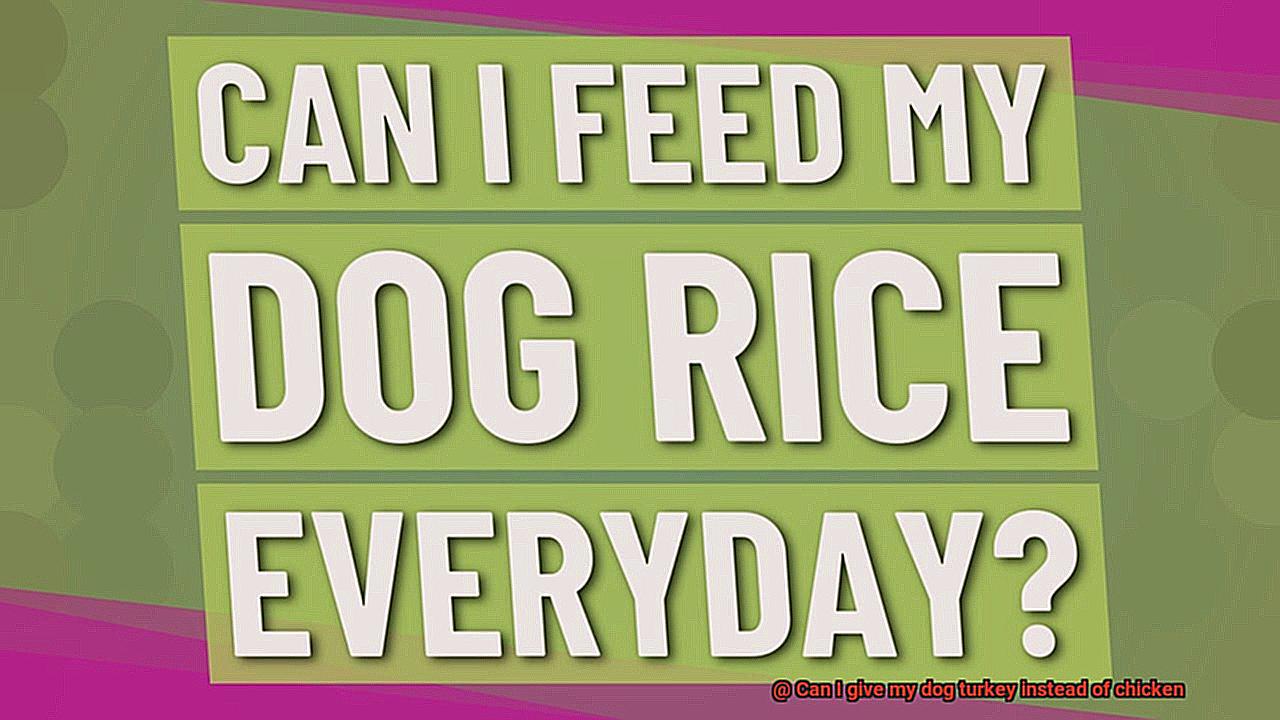
It’s also essential to monitor your French Bulldog for any adverse reactions after introducing turkey into their diet. Some dogs may have allergies or sensitivities to poultry, so keep an eye out for signs like itching, vomiting, diarrhea, or difficulty breathing. If any of these symptoms occur, discontinue feeding turkey and consult with your vet.
Benefits of Feeding Your Dog Turkey
If you’re a proud owner of a French Bulldog, you know just how important it is to keep your furry friend healthy and happy. One way to do that is by adding turkey to their diet. Not only is it a delicious treat for your Frenchie, but it also comes with a bunch of benefits. So, let’s gobble up the advantages of feeding your dog turkey.

Lean Protein Powerhouse
When it comes to protein, turkey is a top-notch choice for your French Bulldog. It’s lean, which means it has less fat compared to other meats like beef or pork. This makes it perfect for Frenchie friends who are watching their weight or need a low-fat diet. Plus, protein is essential for muscle development and repair, so turkey helps keep those little muscles strong and healthy.
Vitamins Galore
Turkey isn’t just tasty; it’s packed with vitamins too. Vitamins B6 and B12 are abundant in turkey, supporting your Frenchie’s nervous system and energy production. These vitamins are like little superheroes that keep your pup energized and ready for playtime.
Selenium Supercharge

Did you know that turkey contains an antioxidant called selenium? This super nutrient helps boost your French Bulldog’s immune system, keeping them strong and healthy. It also promotes a luscious coat and healthy skin, making sure your Frenchie looks as fabulous as they feel.
Easy on the Tummy
French Bulldogs can be prone to sensitive stomachs or digestive issues, but fear not. Turkey is easier to digest than some other meats, making it gentle on your Frenchie’s tummy. So, if your pup has a sensitive stomach or struggles with digestion, turkey might just be the answer.
Joint Health Support
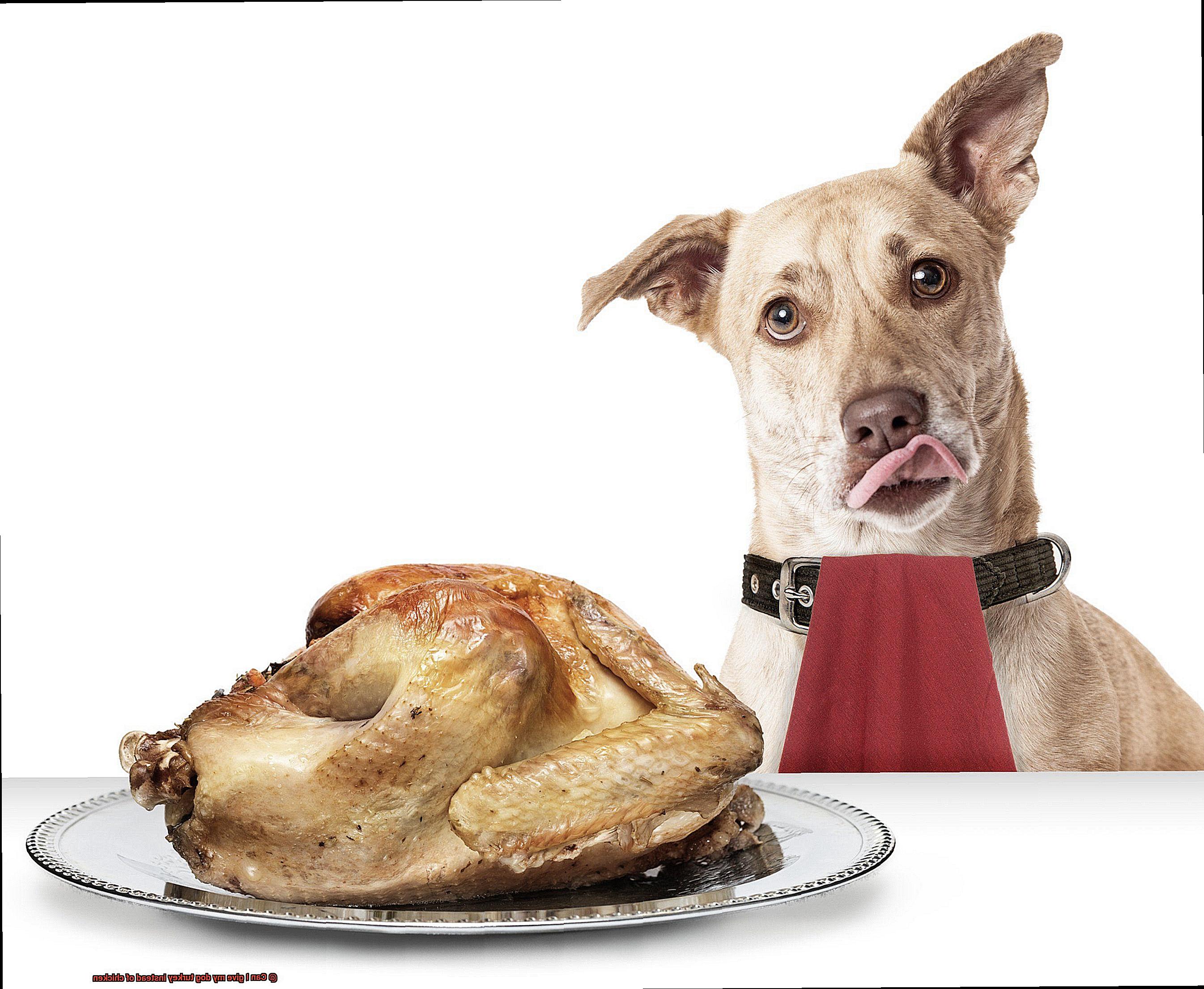
As French Bulldogs age, they may start experiencing joint issues or arthritis. That’s where turkey comes to the rescue. It contains natural glucosamine, which helps promote joint health and keeps those joints moving smoothly. So, by adding turkey to your Frenchie’s diet, you’re giving them some extra support for their joints.
Variety is the Spice of Life
Let’s face it – eating the same thing every day can get boring, even for our furry friends. By adding turkey to your French Bulldog’s diet, you’re providing them with some variety and preventing them from getting tired of the same old protein source. It’s like a little gourmet treat for your Frenchie’s taste buds.
But Remember…
While turkey is a fantastic addition to your French Bulldog’s diet, there are a few things to keep in mind. Always remove the skin and bones from turkey before feeding it to your pup. These can pose a choking hazard or cause digestive issues. Also, make sure to consult with your vet and feed turkey in moderation – it shouldn’t replace their regular balanced dog food.
Considerations When Feeding Your Dog Turkey
Turkey can be a delicious and nutritious addition to your French Bulldog’s diet, but there are a few important considerations to keep in mind. As a responsible dog owner, it’s essential to ensure that you are providing your furry friend with the best possible care and nutrition. Here are some considerations to keep in mind when feeding your French Bulldog turkey:
- Balanced Diet: While turkey can provide your French Bulldog with lean protein, it’s important to remember that dogs are primarily carnivorous animals. They require a balanced diet that includes other essential nutrients such as carbohydrates and fats. Turkey should be incorporated as part of a well-rounded meal plan.
- Preparation: When preparing turkey for your French Bulldog, it’s crucial to cook it thoroughly and serve it without any seasoning or added ingredients. Seasonings like garlic and onion can be toxic to dogs and should be avoided. Additionally, avoid using butter or oil when cooking the turkey, as excessive fat content can lead to digestive issues or even pancreatitis.
- Portion Control: While turkey can be a healthy protein source for your French Bulldog, it should only make up a portion of their overall meal. The amount of turkey you provide should depend on their size, age, and activity level. It’s best to consult with your veterinarian to determine the appropriate portion size for your specific dog.
- Allergies and Sensitivities: Just like humans, dogs can have allergies or sensitivities to certain proteins, including turkey. Watch for any signs of digestive upset, such as diarrhea or vomiting after introducing turkey into their diet. If your French Bulldog shows any adverse reactions, it may be necessary to eliminate turkey from their diet altogether.
- Pre-existing Health Conditions: If your French Bulldog has any pre-existing health conditions or dietary restrictions, it’s crucial to consult with your veterinarian before introducing turkey into their diet. Your vet will be able to provide personalized advice and guidance based on your dog’s specific needs and health status.
Is Turkey a Healthy Substitute for Chicken?
Are you looking to switch up your four-legged friend’s diet? Well, let me tell you why turkey can be a paw-some substitute for chicken when it comes to feeding your adorable pooch.
Lean and Mean Protein Powerhouse
Just like chicken, turkey is packed with lean protein that is essential for your Frenchie’s overall health and muscle development. Both these birds provide the necessary amino acids that keep your furry friend strong and energized. So, whether you’re cooking up a storm or opting for commercial dog food, turkey is a great option to keep those tails wagging.
Fat Content: Feather-light
If your Frenchie needs to shed a few pounds or has a sensitive tummy, turkey is the way to go. It has lower fat content compared to chicken, making it a perfect choice for dogs watching their waistlines or dealing with digestive issues. Turkey can also be a lifesaver for pups with pancreatitis or other conditions that require a low-fat diet. Talk about a win-win situation.
Turkey-tastic Nutrients
Did you know that turkey is not just delicious but also a treasure trove of vitamins and minerals? It’s like finding a pot of gold at the end of a rainbow. Turkey boasts B vitamins, iron, zinc, and potassium, all of which contribute to your Frenchie’s immune system, skin and coat health, and muscle function. With turkey in their bowl, your pup will be barking with joy and feeling their absolute best.
A Word of Caution: Keep Seasonings at Bay
While we all love adding flavor to our meals, remember that dogs have different taste buds than us humans. When cooking turkey for your Frenchie, be sure to skip the seasoning shenanigans. Salt, garlic, and onion can be harmful to our furry friends, so let’s keep their meals simple and safe. Trust me, they’ll still gobble it up with gusto.
Start Small, Little Frenchie Bellies
Introducing new foods can be exciting, but let’s take it slow and steady like a French Bulldog strutting its stuff. Start by offering small portions of turkey to ensure your Frenchie’s tummy can handle it. Keep an eye out for any upset tummies or unusual reactions. Remember, if anything seems off, don’t hesitate to consult with your vet.
How to Introduce Turkey to Your Dog’s Diet
Turkey is not only a tasty treat for humans, but it can also be a healthy addition to your French Bulldog’s diet. However, it’s important to introduce turkey gradually and in moderation to avoid any digestive upset or allergies. In this guide, we will walk you through the process of safely incorporating turkey into your furry friend’s meals, ensuring their health and happiness.
Can Dogs Have Turkey Instead of Chicken?
While dogs can enjoy turkey, it’s crucial to understand that it should not entirely replace chicken in their diet. Both meats offer different nutrients that are essential for your dog’s well-being. Chicken provides omega-3 fatty acids and certain amino acids that are not found in turkey. Therefore, it’s best to include a variety of protein sources in your dog’s meals.
Introducing Turkey Step-by-Step:
Start with Plain, Cooked Turkey Meat:
Begin by cooking plain boneless, skinless turkey meat. Ensure it is properly cooked and free from any seasonings, spices, or additives that could be harmful to your dog.
Gradually Mix It Into Their Meals:
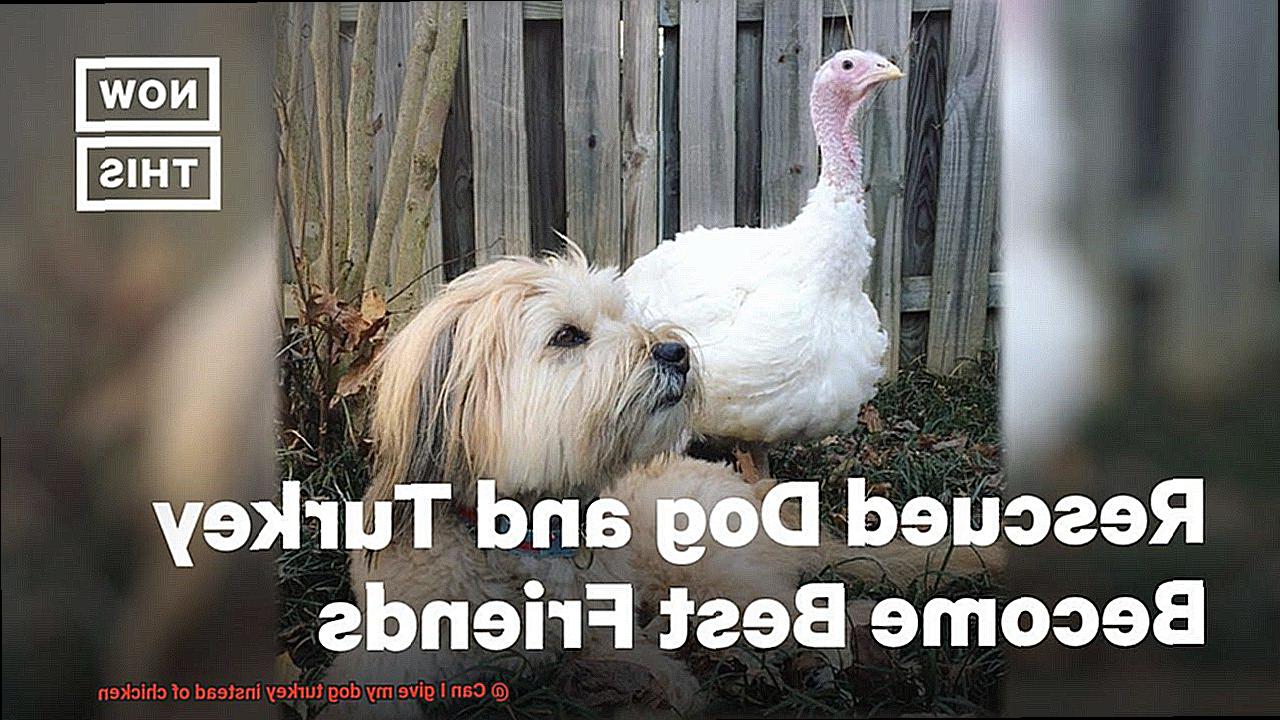
Incorporate small amounts of cooked turkey into your dog’s regular meals gradually. Mix it with their usual food to allow them to get accustomed to the new taste and texture.
Monitor Their Reaction:
Keep a close eye on your dog’s reaction to the turkey. Watch for any signs of digestive issues such as vomiting, diarrhea, or excessive gas. If you notice any adverse reactions, stop feeding them turkey and consult with your veterinarian.
Increase the Amount Slowly:
As your dog adjusts to the turkey, you can gradually increase the amount you include in their meals. However, be cautious not to replace their entire diet with turkey as it should only be a part of a balanced meal plan.
Avoid Bones and Excess Fat:
Remember to never feed your dog turkey bones as they can splinter and cause choking hazards or internal injuries. Additionally, remove any excess fat or skin from the turkey meat, as too much fat can lead to pancreatitis in dogs.
Consult Your Veterinarian:
If you have any concerns or questions about introducing turkey into your French Bulldog’s diet, it’s always best to consult with your veterinarian. They can provide personalized advice based on your dog’s specific needs and dietary requirements.
Potential Health Risks of Feeding Dogs Turkey
Turkey is a popular protein choice for many dog owners, including those with French Bulldogs. While it can be a healthy addition to your pup’s diet, it’s important to be aware of potential health risks. In this article, we’ll explore the potential dangers and how to safely feed turkey to your furry friend.
High Fat Content:
Turkey, especially the skin and dark meat, is rich in fat. Feeding your French Bulldog fatty foods can increase the risk of pancreatitis, a painful inflammation of the pancreas. Symptoms include vomiting, diarrhea, and abdominal pain. To avoid this, remove the skin and opt for leaner cuts of turkey.
Bones:
Cooked bones can splinter and pose serious risks to your dog’s digestive tract. Always ensure that you remove all bones from the turkey before feeding it to your French Bulldog. Bone fragments may cause choking, blockages, or tears in the intestines.
Allergies and Sensitivities:
Just like humans, dogs can have food allergies or sensitivities. Turkey is a common allergen for some dogs, resulting in symptoms such as itching, rashes, gastrointestinal upset, or even respiratory issues. If you suspect an allergy or sensitivity, consult with your veterinarian for proper diagnosis and guidance.
Seasonings and Preparation Methods:
Many seasonings and ingredients used in preparing turkey can be harmful to dogs. Garlic and onion are toxic to dogs and should be avoided. Stick to plain, unseasoned turkey when feeding your French Bulldog.
Introducing New Foods Gradually:
Introducing any new food into your dog’s diet should always be done gradually to prevent digestive upset. Start by offering small amounts of turkey and monitor their reaction before increasing portion sizes. Sudden changes can lead to stomach upset, diarrhea, or vomiting.
Tips for Choosing Safe and Nutritious Meats for Dogs
Turkey is a delicious and popular protein source for humans, especially during holidays like Thanksgiving. But can dogs enjoy this tasty meat as well? The answer is yes, but there are a few things to consider before substituting chicken with turkey in your pup’s diet.
Turkey is a lean and low-fat meat, which can be beneficial for dogs that need to watch their weight or have certain health conditions. It is also packed with protein, vitamins B6 and B12, and minerals like iron and zinc. These nutrients are essential for your dog’s overall health and well-being.
However, when feeding your dog turkey, it is important to remove the skin. The skin can be high in fat and difficult for dogs to digest. Additionally, any seasoning or spices should be avoided, as they can be harmful to dogs.
While turkey can be a nutritious option for dogs, it should not replace chicken entirely in their diet. Dogs require a balanced and varied diet to meet all their nutritional needs. Chicken offers different nutrients than turkey, such as omega-3 fatty acids and certain amino acids. Therefore, it is best to incorporate both meats into your dog’s diet to provide a wide range of essential nutrients.
Before introducing turkey into your dog’s diet, start with small amounts and monitor their response. Some dogs may be sensitive or allergic to poultry, so it’s important to watch for any adverse reactions like vomiting or diarrhea. If you notice any negative symptoms, it’s best to consult with your veterinarian.
In conclusion, while dogs can safely eat turkey, it should not replace chicken entirely in their diet. Turkey can be a healthy addition in moderation, but it is important to remove the skin and avoid seasoning. Remember to consult with your veterinarian before making any changes to ensure the best nutrition for your furry friend.
Conclusion
In conclusion, it is perfectly safe and healthy to give your dog turkey instead of chicken.
Not only does turkey provide a delicious alternative for your furry friend, but it also offers numerous health benefits. Turkey is a lean protein source that is low in fat and rich in essential nutrients like vitamins B6 and B12, zinc, and selenium.
Additionally, turkey is highly digestible for dogs, making it an excellent choice for those with sensitive stomachs or dietary restrictions.
